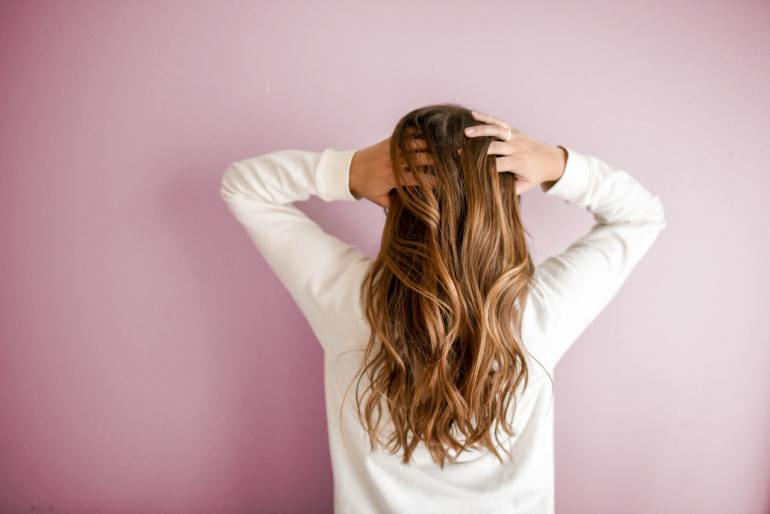With the growing desire for natural beauty care products, it has become more and more popular in recent times to search for and use the properties of natural oils that help solve many problems, instead of searching among synthetic cosmetic products.
Among the most common beauty problems, the desire to prevent hair loss and treat thinning hair is at the top of that list.
Once the mention of "thick hair" or the desire to prolong hair and help it grow, castor oil is mentioned.
Castor oil has many important hair protecting properties, from moisturizing the scalp and reducing dandruff to helping you get soft and shiny hair.
But how effective is this oil if you want thicker, heavier hair? And how can it be applied correctly in order to achieve the best results?
Some use castor oil to lengthen hair and treat natural hair loss and pathological precipitation known as alopecia (Pixels).
Castor oil and its benefits in hair care
Castor oil is a vegetable oil that comes from the castor seed.
There are two ways to extract the oil from the plant, either by cold pressing or by heat treatment.
There are differences in color and composition caused by different processing methods, but in terms of benefits for hair and scalp, the nutritional value does not vary greatly.
And with castor oil gaining popularity in the natural beauty world, the use of the oil is believed to significantly increase the rate of hair growth.
According to regular oil users, monthly use of the oil boosts hair growth by up to 5 times the usual rate.
In addition to its ability to increase the rate of growth, some research, including a study published in the Journal of Cosmetic Science in 2003, indicates that castor oil improves the appearance of hair by increasing its luster.
Some use castor oil to lengthen hair and treat natural hair loss and pathological alopecia, also known as alopecia.
The oil is marketed as a treatment for dry scalp and dandruff problems as well.
While the average human hair follicle grows at just over one centimeter per month, it is believed that using castor oil once a month can stimulate growth at 3 to 5 times the normal rate, according to Healthline.
Although there are limited studies on the direct effect of castor oil on hair growth, there are many indications that it plays an indirect role in contributing to the healthy growth of hair.
For example, the ricinoleic acid in castor oil increases blood flow to the scalp, which promotes healthy hair and growth as well as reducing inflammation.
Castor oil also has antimicrobial properties, which help protect the scalp from diseases and infections.
The correct way to use castor oil
Although castor oil is widely used, it may not be suitable for everyone due to its thickness and properties.
It is therefore important to do a sensitivity test before applying it to the entire scalp.
The Elle website advises women to put a small amount behind the ear or the inner part of the arm for a week, and wait to see if the body is allergic to castor.
After that, the oil can be used in the following ways, according to each type of hair:
Fine, Straight and Medium Fine Hair:
Castor oil can be used as a deep oil bath to protect the ends of the hair, i.e. the last 2-3 inches of hair.
It can be used as a pre-shampoo treatment to help keep hair untangled.
But be sure not to overuse the shampoo after it.
Medium-fine to thick, wavy hair: Apply
the oil to the entire head for a volumizing pre-shampoo treatment.
More benefit can be achieved by exposing the hair to medium heat or steam to facilitate the scalp's absorption of the oil.
Wavy hair:
Castor oil can be used for this type of hair by mixing drops of it in the usual cream bath products, especially during the hot and humid summer months.
Thick, coarse and curly hair:
Castor oil can be used as needed in your hair care regimen, either in the form of an oil bath before shampooing, or as a weekly moisturizer.
It should be noted that it is necessary to choose a suitable shampoo to get rid of the accumulation of oils in the hair and scalp, so as not to cause contamination of the hair roots;
Thus, exposure to dandruff and hair weakness and loss, provided that the oil is used once a week at most.
In general, you can rub the scalp with a few drops of the oil to get the best results.
You can also massage a few extra drops of castor oil into the middle and ends of the hair to protect it from breakage and improve its texture.
It is believed that applying castor oil once a month can stimulate growth 3-5 times the normal rate (pixels).
Possible side effects
There are some concerns that using castor oil as a hair treatment could lead to severe hair follicles, a rare disorder in which hair gets tangled up in hard clumps.
Since the condition has no cure, the only solution is to cut the affected hair.
It should also be noted that consuming large amounts of castor oil can be harmful to the body and lead to many side effects, as follows: (colic, diarrhea, dizziness, hallucinations, fainting, nausea, shortness of breath and chest pain, rash, tightness throat), which are symptoms often associated with an allergy to castor oil.
And if you are thinking of using castor oil as a treatment for hair loss, also remember that hair loss may be a sign of an underlying health problem in the body.
Therefore, it is necessary to speak to a specialist if you suffer from severe and unexplained hair loss.

